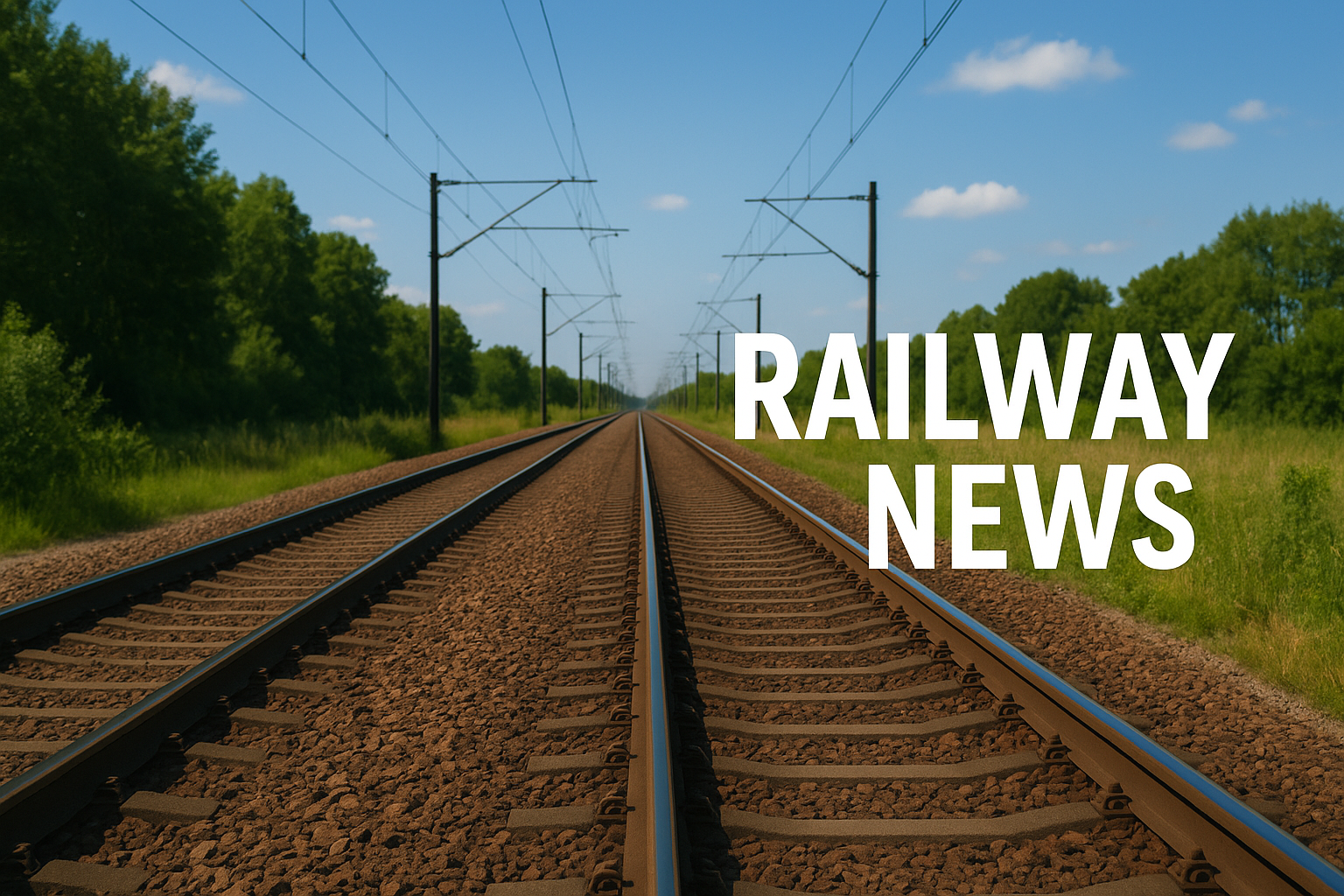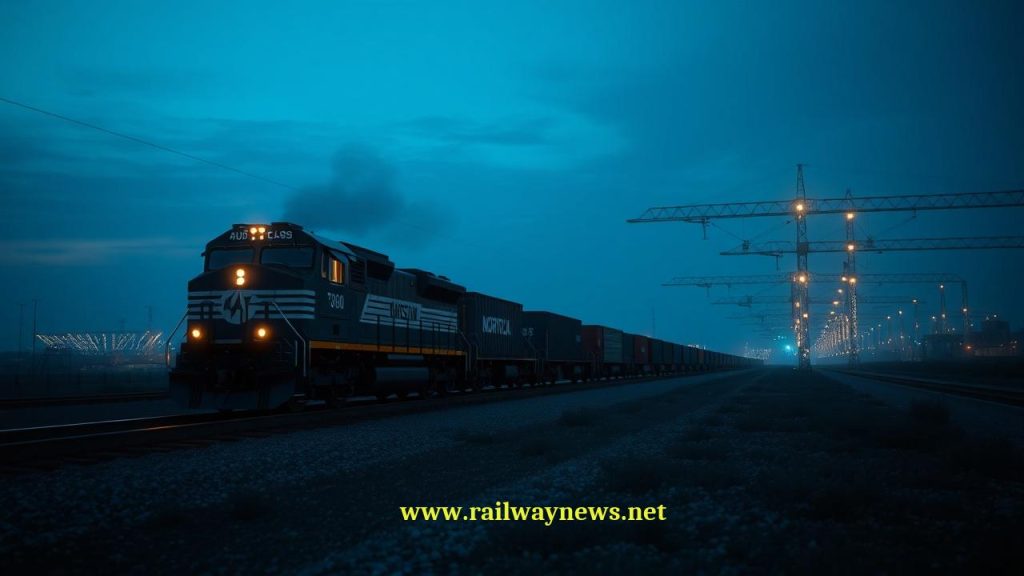Cordel’s AI-Powered Rail Revolution: Network Rail’s RGDS

Introduction
This article examines the significant contract awarded to Cordel Group by Network Rail (NR), the UK’s infrastructure manager, for the provision of a Railway Gauging Data Solution (RGDS). This multi-million pound agreement marks a substantial step forward in modernizing the management of the UK’s complex rail network. The contract centers around replacing the existing National Gauging Database (NGD) with a cutting-edge Software as a Service (SaaS) platform. This new system will manage an extensive network encompassing over 32,186.88 kilometers of track, thousands of structures (bridges, tunnels, viaducts), numerous stations, signals, and level crossings. The implications of this project extend beyond mere data management, impacting safety, efficiency, and the overall operational capacity of the UK rail system. The transition to Cordel’s platform promises improved accuracy, enhanced data processing capabilities, and the potential for future advancements leveraging artificial intelligence (AI) and machine learning (ML) for predictive maintenance and optimized operations. This case study exemplifies a pivotal shift in rail infrastructure management towards data-driven decision-making and the potential for global adoption of similar technologies.
The Scope of the Contract
Network Rail’s contract with Cordel covers the complete replacement of the existing National Gauging Database (NGD). The new Railway Gauging Data Solution (RGDS) will be delivered as a Software as a Service (SaaS) platform, providing a centralized and readily accessible repository for all gauging and clearance information. This encompasses a vast amount of data related to the UK’s intricate rail infrastructure, including precise measurements and specifications for tracks, bridges, tunnels, viaducts, stations, signals, and level crossings. The sheer scale of the network (32,186.88 km of track) and the diversity of its assets highlight the complexity of this undertaking and the significance of a reliable, efficient, and scalable data management system. The initial 6.5-year contract, valued at £3.2 million ($4.29 million), has the potential for extension to 8.5 years, underscoring the long-term commitment to this technological upgrade.
Technological Advancements and AI Integration
Cordel’s RGDS leverages advanced technologies to improve data management and analysis within the railway sector. The SaaS platform offers improved accessibility and efficiency compared to traditional methods, allowing for streamlined data processing and enhanced collaboration among stakeholders. Crucially, the system is designed to integrate AI and machine learning (ML) capabilities. This integration opens up opportunities for predictive maintenance by analyzing historical data to identify potential issues before they become major problems, leading to cost savings and improved safety. The AI-driven analytics can optimize infrastructure management, allowing for more efficient resource allocation and proactive mitigation of risks. This move towards AI-powered solutions is a significant step forward for the UK rail network and serves as a model for other global rail systems aiming for operational excellence.
Challenges and Opportunities
The implementation of a new, large-scale system like Cordel’s RGDS presents inherent challenges. Migrating data from the existing NGD to the new platform requires meticulous planning and execution to ensure data integrity and minimize disruption to operational activities. Training Network Rail personnel on the new system and ensuring smooth integration with existing workflows are also key considerations. However, successful implementation presents significant opportunities. Improved data accuracy will enhance safety by providing a comprehensive and up-to-date understanding of the network’s clearances. The system’s efficiency will contribute to cost reductions through optimized maintenance and improved resource allocation. Furthermore, the successful deployment of this solution positions Cordel as a global leader in railway gauging technology, paving the way for future expansion into other international markets.
Conclusion
The contract awarded to Cordel Group by Network Rail represents a significant milestone in the modernization of the UK’s rail infrastructure. The replacement of the National Gauging Database with Cordel’s Railway Gauging Data Solution (RGDS) is not merely a technological upgrade; it represents a fundamental shift towards a data-driven approach to rail management. The adoption of a Software as a Service (SaaS) platform improves accessibility, efficiency, and collaboration. The integration of AI and machine learning capabilities promises further advancements in predictive maintenance, operational optimization, and overall safety. The project’s scope, encompassing the entirety of the UK’s complex rail network – over 32,186.88 kilometers of track, thousands of structures, and numerous other assets – highlights the immense scale of the undertaking. While challenges exist in data migration and system integration, the potential benefits in terms of safety, efficiency, and cost savings are substantial. The success of this project could serve as a model for other national rail networks worldwide, driving the adoption of similar advanced technologies and ushering in a new era of intelligent rail management. The long-term implications extend beyond the immediate benefits, suggesting a transformative effect on the entire railway industry’s approach to data management and operational efficiency. This substantial investment in advanced technology showcases a commitment to enhancing the safety and reliability of the UK’s vital rail network and underscores the growing importance of data-driven solutions in modern rail operations. Cordel’s success in this endeavor solidifies its position as a leading innovator in the field, offering a powerful testament to the transformative potential of AI and machine learning within the railway industry.

